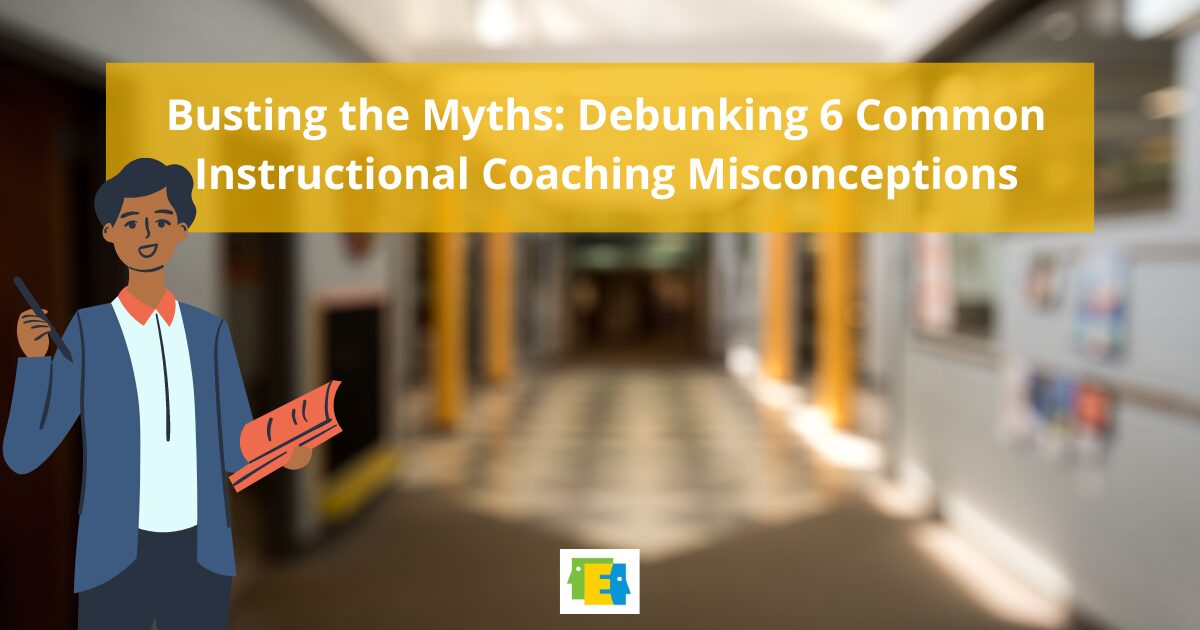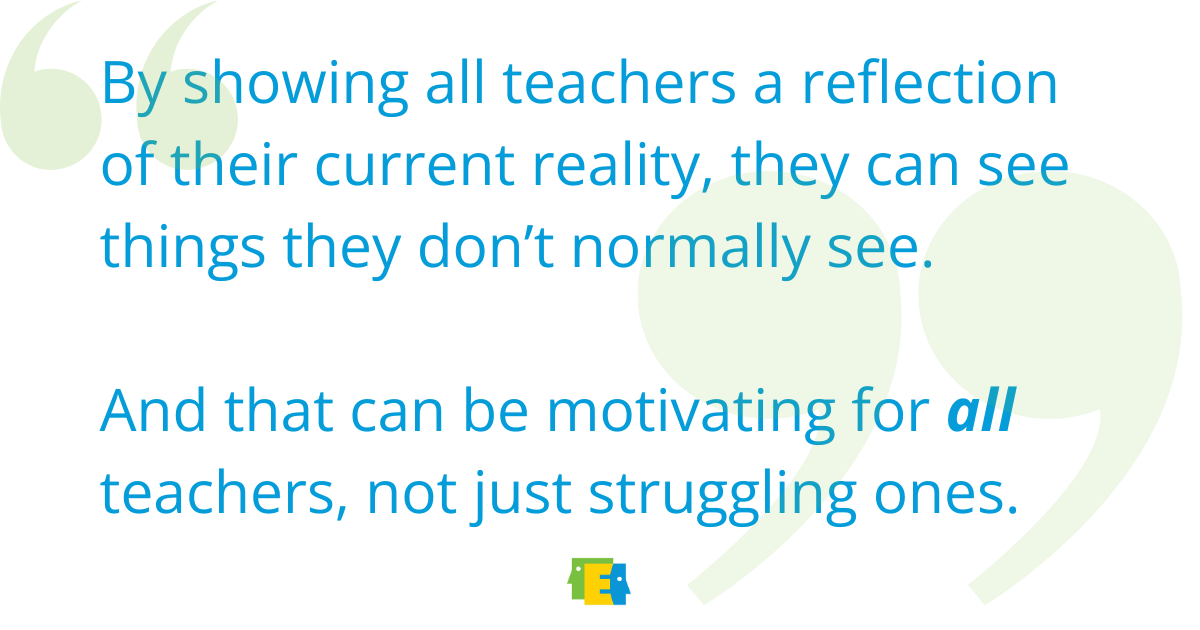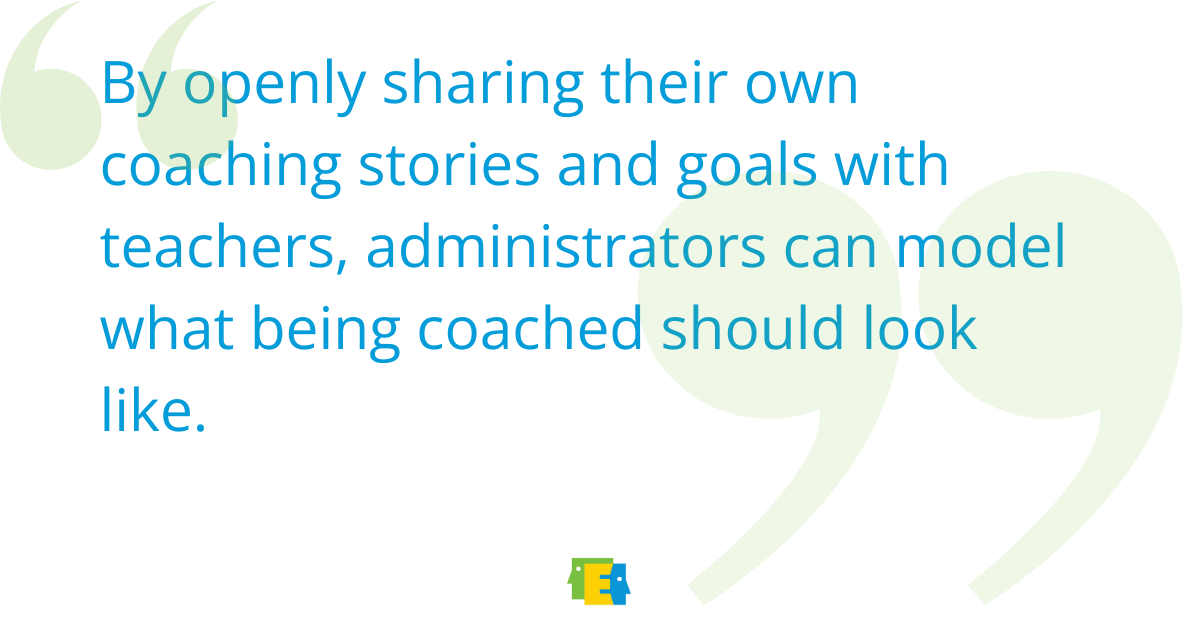Busting the Myths: Debunking 6 Common Instructional Coaching Misconceptions

With more than 10 years of experience supporting educators and organizations, our team has encountered several myths regarding instructional coaching. Here are a few common misconceptions and why it’s important to dispel them.
Myth 1: Instructional coaching is only for struggling teachers
Instructional coaching (and coaching in general) is not something that is only for people who are struggling. One only needs to consider professional athletes to realize this misconception. Even Olympic world champions have coaches.
What is the goal of instructional coaching?
The profession of teaching prizes the idea of continually increasing effectiveness so highly that it’s enshrined into every state’s professional standards. The goal of instructional coaching is to accelerate teachers’ growth regardless of their level of performance.
Why is instructional coaching important?
Instructional coaching, aided by resources like videos of classroom teaching, can help teachers (some who may not even know that they are struggling) see what Jim Knight calls, a clear picture of current reality.

By showing all teachers a reflection of their current reality they can see things they don’t normally see. And that can be motivating for all teachers, not just struggling ones.
Encouraging a growth mindset for all teachers helps build camaraderie and shared purpose for teaching staff.
“People are motivated when they see reality because they either want more of this or less of that,” Jim Knight says.
Myth 2: Teachers don’t have time for instructional coaching
It’s no secret that many teachers and educators struggle to find enough time in the day for all of their responsibilities. So when the subject of instructional coaching comes up, a common refrain is that there’s just not enough time to do it.
Coaching doesn’t need to be perceived as an add-on to what teachers are already doing, it should be considered as a way to improve and optimize it. Effective coaches look at what a teacher’s current goals are and help them get there faster.
How can instructional coaching for teachers save time?
One of the benefits of instructional coaching is that coaches can help teachers save time by sharing best practices from their own experience or other teachers.
Many coaches are content specialists who are familiar with the common challenges of teaching a certain subject. They can share tips or best practices they’ve learned throughout their career (and from other teachers) to overcome them. Teachers may even be more receptive to coaching from a content specialist than an administrator who has been out of the classroom for years.
While collaboration is an extremely powerful coaching tool, it is unfortunately often limited by staff resources. Another way to save time is to help teachers develop the skills for self-improvement. Tools like Edthena’s AI Coach platform can help teachers self-reflect and improve their instructional practices on their schedule.
Myth 3: Instructional coaching needs coaches to be in-person
For many schools with newly alternatively certified teachers and dwindling numbers of coaches, there simply aren’t enough coaches to provide the amount of coaching that schools need, especially with handling other duties as assigned.
The myth though is that coaching has to happen in person all the time. Schools can rethink traditional coaching and leverage technology to help lighten the load on overburdened coaches and mentors (often at a fraction of the cost of hiring an instructional coach).
Tools like Edthena’s video coaching platform, allow observations to happen asynchronously and without the need to travel from classroom to classroom and building to building. This can save coaches and administrators enormous amounts of time while providing rich data points for in-depth coaching conversations when they do happen.
Myth 4: Coaching is only for teachers
Many current administrators or school staff are former classroom teachers who were trained how to be classroom teachers, not necessarily administrators. Yes, additional formal education may be required to become an administrator but coaching is also a crucial part of their development.
Just because someone got hired for a job does not mean they have everything they need to do the job. Administrators need support too. And many are often receiving it from their district.

By openly sharing their own coaching stories and goals with teachers, administrators can model what being coached should look like. When school and district administrators openly engage in coaching it shows teachers and staff that everyone can benefit from it.
Myth 5: Instructional coaching data supports formal evaluation
Anyone who’s ever experienced a classroom observation knows it can feel like your entire practice is being put under a microscope. Without unbiased classroom evidence (like video) observation data can feel subjective.
But instructional coaching is not solely about evaluation, criticism, or judgment, it’s about growth, improvement, and support. The formal evaluation process is separate and unique from the instructional coaching process. Supportive coaching can help teachers feel less stressed about formal evaluations because they have already implemented feedback from their coach to improve their instructional practice.
Instructional Coaches, mentors, and administrators can create a safe environment for growth to happen and that starts by building trust and common goals.
Myth 6: Instructional coaching goals are about achieving the bigger-picture school goals
Some teachers may feel averse to coaching because they think they won’t have a say in what they’ll be working on. They may fear that a coach is going to come and tell them to teach things a different way because that’s the way an administrator wants it taught.
In fact, effective coaching is about meeting teachers where they are and creating effective action plans to help them get where they want to go with their instructional practice. Coaching is something that is most effective when it’s done with teachers, not to them.
Tools like AI Coach are a great way for schools to help teachers set their own goals and build action plans to achieve them. AI Coach is teacher-centered and teacher-driven and it facilitates autonomous instructional coaching that drives instructional growth.
If your district or organization is looking for support in building a high-performing instructional coaching program, contact us today!
